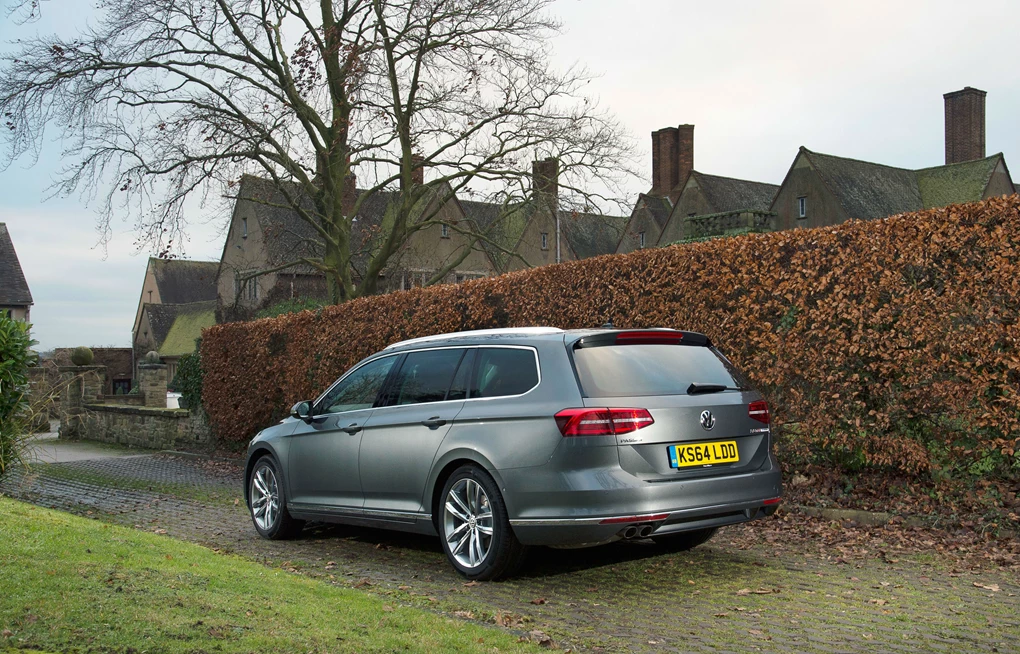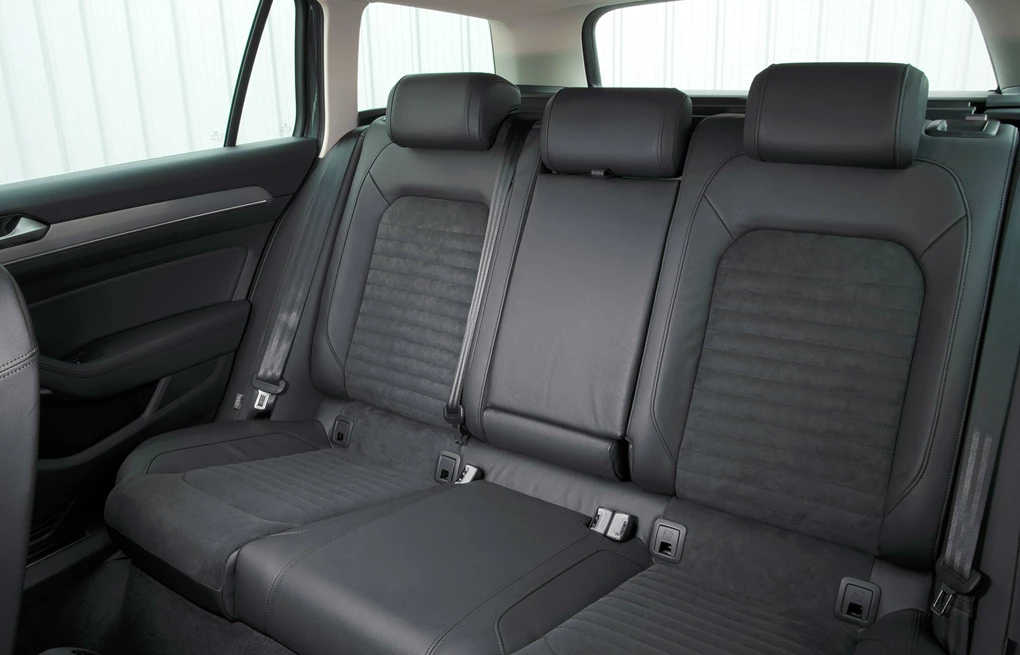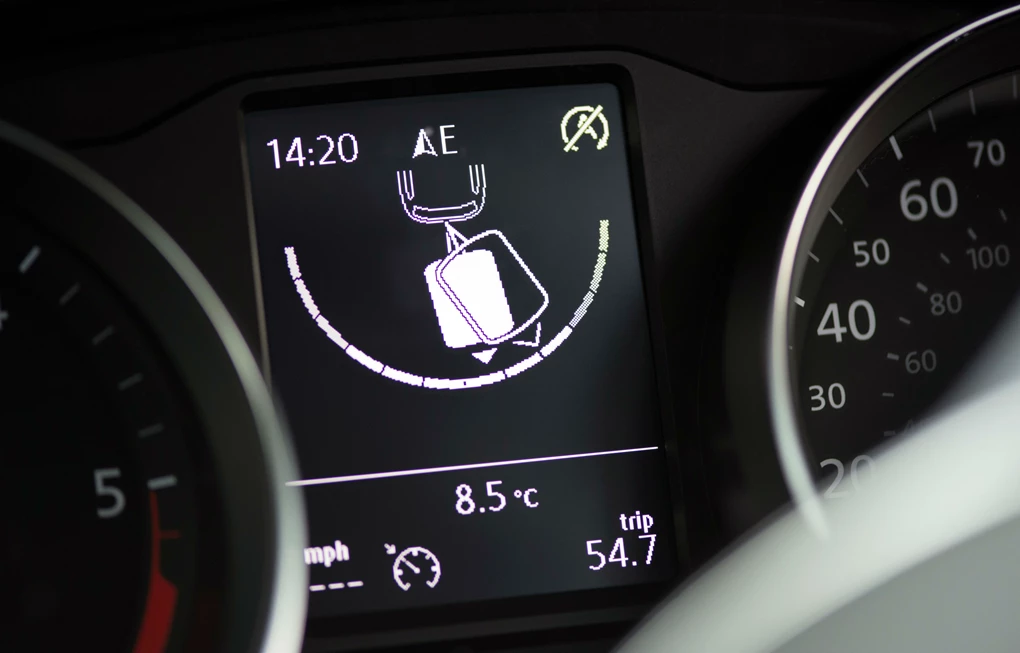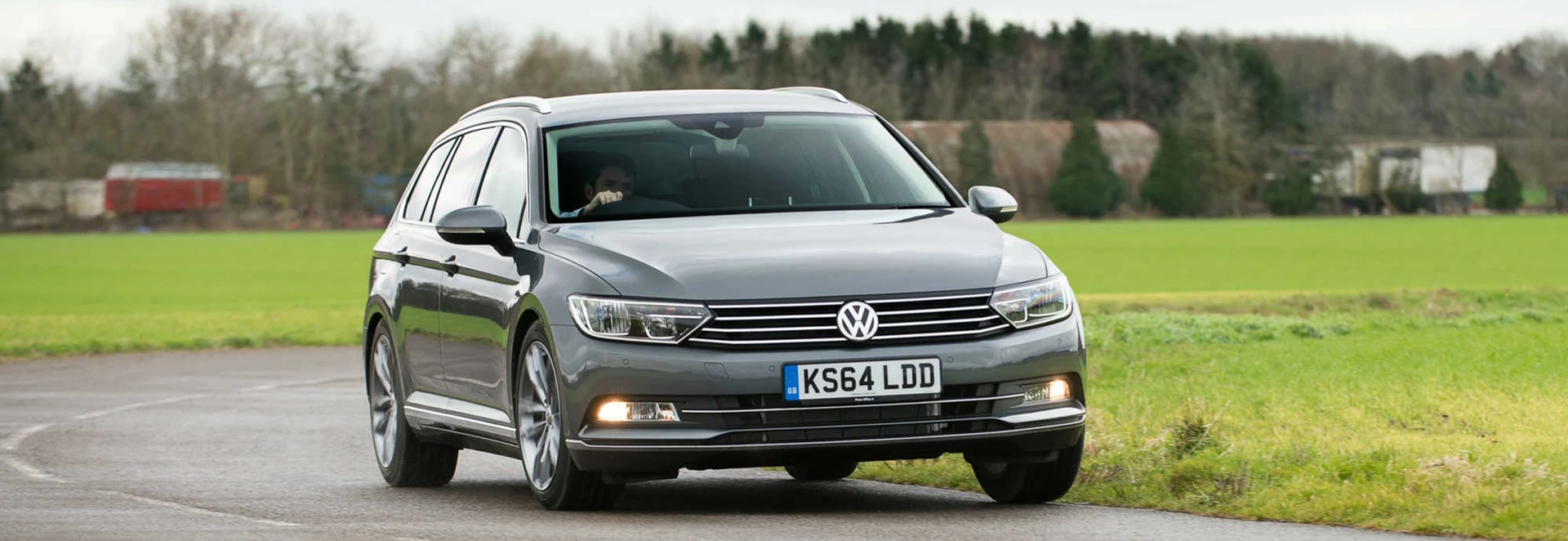There’s a lot to like about estate cars. They drive better than SUVs and offer lots of practicality, so how will the Volkswagen Passat fare?
The Passat has always been very good, but it hasn't quite reached class-leading status. This has largely been because its rivals have been so good, with models like the Ford Mondeo Estate offering an excellent drive, while the Audi A4 Avant boasts a great interior.
This latest Passat Estate is not majorly different in terms of styling compared to its predecessor, but it has been improved in just about every area. The new Passat Estate is now lighter, sharper to drive and more spacious within.
Thanks to all of that, this car has an even better chance of appealing to car buyers after a high quality large family car or even company car drivers.

Performance
Three diesel engines will be available - a 1.6-litre, a 2.0-litre unit and another 2.0-litre Bi-Turbo TDI. The 1.6-litre produces 118bhp while there are two variants of the 2.0-litre power plant - a 148bhp and a higher-powered 187bhp engine, while the 2.0-litre Bi-Turbo produces 236bhp. First we tried the 148bhp 2.0-litre diesel unit and it was more than capable. Both on motorway and single lane carriageways this engine performed brilliantly. In fact, it's so good, we doubt many will need the extra performance of the BiTDI model, unless they particularlly require four-wheel drive.
Our car was mated to a six-speed manual and, yes, it is a smooth shifting unit but if push came to shove we would choose the DSG ‘box every time. We know how many snarl-ups occur on the UK road network and the DSG gearbox makes laborious journeys that much easier.
Performance times will match most rivals in this class. The benchmark sprint can be completed in 8.9 seconds when the 148bhp 2.0-litre engine is linked to either a six-speed manual or a semi-automatic DSG ‘box. The manual version has a top speed of 136mph while the DSG tops out at 135mph. We've also tested the 1.6-litre diesel in the UK, and while it performs quite admirably, we'd still choose the 2.0-litre as the best all-rounder for carrying heavy loads or towing a trailer.

Ride and Handling
Ride comfort is first class, even on big wheels the Passat Estate deals with bumps very well. Our advice to improve this further would be to choose the smallest wheels available.
Better than ever are three words that pretty much sums up the handling of the latest iteration of the Passat estate. The Passat shares its platform with the latest Golf and like that car, the Passat has become even more enjoyable to drive. The steering is precise and direct, while the weighting is just right. There's not much feedback from the road, but with so much front-end grip when cornering, you can be confident the car will stick to your chosen line. So why is it so much better? A big reason is that is has shed a lot of weight – up to 85kg in some variants – that’s quite a diet the Passat has been on. It’s still not quite as fun as a Mondeo on the twisty stuff, but you’re not going to worry as this car has pulled the Passat name much closer to its rivals than ever before when it comes to driving dynamics. Ride comfort is first class, so even fitted with large wheels, the Passat Estate deals with bumps very well. With smaller wheels, the ride is even better, so we'd recommend them, after all, what’s more important - looks or comfort? If you want to switch between driving modes then you’ll need to tick the box for the Dynamic Chassis Control (DCC), which comes as standard on GT models, but costs £700 as an optional extra on the rest of the range. You can choose between Comfort, Normal and Sport settings depending on your mood and the road ahead. This toggle switch changes the suspension set-up, the steering, throttle response and – in automatic models – the gear changes.

Interior and Equipment
In October 2015 a plug-in hybird version of the Passat Estate will be launched called the Passat Estate GTE.
Even though the Passat estate is shorter and lower than the outgoing model, the good news for passengers is that this model is actually larger inside. This has been achieved thanks to some clever packaging by the VW engineers. The distance between the front and rear wheels has increased making interior passenger space better than ever. Thanks to this, the boot space has also benefited and has grown by 47 litres meaning you now have 650 litres of space with the rear seats in place. That’s cavernous and bigger than any direct rival – only models like the Mercedes E-Class Estate are larger. A nice touch on the Passat is the location of the pull switch to fold the seats. Open the boot and they sit under the lip for easy access. Toggle these levers, fold the seats flat and the boot expands to 1,780 litres, while the wide aperture makes for easy loading and unloading. There will be five trim levels from launch: S, SE, SE Business, GT and R line. Even the entry-level S is well kitted out, but the SE may well be the most popular grade as it includes front and rear parking sensors, adaptive cruise control, and automatic lights and wipers. The BlueMotion trim is also offered from August 2015, with added equipment to reduce running costs, including 17-inch alloy wheels shod with low rolling resistance tyres and aerodynamic tweaks including lowered sports suspension and reshaped bumpers. Opt for the Business trim and this adds satellite-navigation, while the GT grade includes LED headlights, adaptive suspension, 18-inch alloys, climate control and Alcantara seats. Optional extras include a heads-up display, a self-parking system and pedestrian monitoring. There’s also Traffic Assist, which steers, brakes and accelerates for you in traffic jams at speeds of up to 25mph, alongside a Trailer Assist system, which can take care of the steering when you're reversing a caravan or trailer.
Cost
The most frugal engine on the range will be the diesel BlueMotion, which should average 76mpg.
Starting from £23,745 for the 118bhp 1.6-litre diesel in S trim, the entry-level Passat is around £1,500 more expensive than the new Ford Mondeo estate making it ultra-competitive. It rises to £37,035 for the flagship R-Line with the 2.0-litre Bi-Turbo producing 236bhp. The most frugal engine on the range will be the diesel BlueMotion, which should average 76mpg and emits 95g/km of CO2. In comparison the most frugal Ford Mondeo Estate records an average of 74mpg, while the most efficient Audi A6 Avant records 64.2mpg on average.
Our Verdict
VW has upped its game with the latest Passat Estate. The interior has an excellent design, the materials are of a much better quality and, of course, there’s more space for passengers and luggage. Our pick is the 148bhp 2.0-litre, because not only is it the perfect motorway cruiser, it's also fleet friendly thanks to CO2 emissions of just 107g/km with the manual gearbox. The Passat is a fantastic all-rounder, with great looks, performance and affordable running costs. Of all the generations of Passat we've driven, it's the most worthy of 'class-leading' status, and should definitely be on any families short list.





